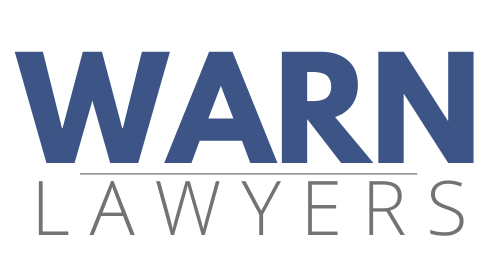Raisner testified twice before the state legislature to gain the law’s passage. It became effective in April 2023, and is the first mandatory severance law of its kind and was prompted by New Jerseyans’ outrage over the collapse of Toys ‘R Us. After this collapse, Raisner Roupinian LLP reached a multi-million-dollar settlement with the Toys ‘R Us debtor for the severance claims of the 33,000 terminated employees who worked in the stores through the wind down.
The new legislation is explained in a January 24, 2023, article in Law360. A summary of the article is included below:
How NJ Employers Should Plan for State WARN Act Overhaul
By Kathryn Brown, Michael Futterman and Patrice LeTourneau (January 24, 2023, 5:29 PM EST)
On Jan. 21, 2020, months before the COVID-19 pandemic emerged in the United States, New Jersey Gov. Phil Murphy signed into law… significant amendments to the Millville Dallas Airmotive Plant Job Loss Notification Act, or the New Jersey WARN Act, New Jersey’s state law counterpart to the federal WARN Act. Almost three years later, the state has determined an effective date of April 10, 2023. The amendments were originally set to take effect in July 2020, but the changes were put on an extended pause due to the pandemic.
***
Garden State employers should be mindful of the significant changes coming to the state’s WARN Act and the dramatically different landscape they will face once the amendments take effect.
In lengthening the required notice period, expanding the scope of coverage and mandating severance pay even when adequate notice is given, the amendments make New Jersey’s mini-WARN law among the nation’s broadest and most expensive to implement. The amendments will widen the gap between the federal WARN Act and the New Jersey WARN Act, making compliance with both laws a more challenging proposition.
We summarize below the key changes to the New Jersey WARN Act:
Expanded Scope of Covered Employers
Currently, the New Jersey WARN Act applies to employers with 100 or more full-time employees. As amended, the 100-employee threshold for coverage applies regardless of whether the employees are employed full time or part-time.
Expanded Scope of “Mass Layoff” Triggering Notice
The current state WARN Act defines “mass layoff” only with respect to employment losses within any 30-day period affecting a threshold number of full-time employees who work at an “establishment.” As amended, a mass layoff triggering notice occurs if an employer terminates, within any 30-day period, 50 or more employees, regardless of their full- or part-time status and whether they work at or merely report to any establishment.
Aggregation of Worksites Across New Jersey
Further expanding the scope of a mass layoff, the amendments to the New Jersey WARN Act change the definition of an “establishment.”
The current state WARN Act defines an “establishment” as a single location or group of contiguous locations. The amended New Jersey WARN Act defines “establishment” to include multiple locations within the Garden State, regardless of how far apart they are. Therefore, when counting employment losses to determine if a mass layoff has occurred, New Jersey employers must consider what is happening at all worksites within the state.
Increased Notice Period
The amendments increase the notice period from 60 days — the length of time required under the federal WARN Act — to 90 days. With this change, New Jersey will join New York and Maine as the only other states that have imposed a 90-day notice period for covered events under a mini-WARN law.
Mandatory Severance Pay Even When Proper Notice Is Given
Currently, the New Jersey WARN Act requires employers to pay severance only to full-time employees affected by a notice-triggering event, and only in the event that 60 days’ notice is not given. In its amended form, the state WARN Act makes the right to severance pay automatic, even when affected employees receive the full 90 days’ notice to which they are entitled. Employees affected by a notice-triggering event under the amended New Jersey WARN Act are entitled to one week of severance pay for each completed year of service, regardless of their full- or part-time status. However, union-represented employees with a right to severance pay under a collective bargaining agreement are not entitled to receive additional severance pay under the state WARN Act, as amended. In making the right to severance pay automatic, the Garden State will stand alone as the only state requiring severance pay in addition to adequate notice under a mini-WARN law. Like New Jersey’s current state WARN Act, Hawaii and Maine require severance pay under their mini-WARN laws only if a covered employer fails to give adequate notice. The federal WARN Act has no severance pay obligation.
Exceptions to the New Severance Pay Obligation
The amended New Jersey WARN Act changes the definition of “mass layoff” under the as-modified state WARN Act to exclude “national emergencies” and certain other events from triggering the severance obligations. These changes make clear that mass layoffs resulting from the COVID-19 pandemic, a national emergency, did not trigger the new severance obligations. These exceptions actually stem from…a second amendment to the New Jersey WARN Act, effective April 14, 2020.
Bar on Private Releases
Under the amended New Jersey WARN Act, affected employees are entitled to severance pay without any requirement of a release. In fact, the amendments provide that a release of claims under the state WARN Act is enforceable only if the New Jersey Department of Labor and Workforce Development or a court approves the release.
Accordingly, Garden State employers accustomed to providing severance pay only in exchange for a release agreement will need to change their practice to comply with the changes.
No New Obligations in a Change of Control
Originally, the amendments were set to include an entirely new set of obligations that would apply in the event of a change of control, defined as “any material change in ownership of an employer” or “any filing seeking bankruptcy protection.” The final version of the amendments drops the “change of control” requirements. Accordingly, the New Jersey WARN Act will continue to require notice only in the event of a mass layoff, termination of operations or transfer.
Potential for Individual Liability of Decision Makers
The amendments to the New Jersey WARN Act broaden the definition of a covered “employer” to include individuals acting “in the interest of an employer” and persons making the decisions that give rise to a mass layoff-triggering notice. In effect, the amended state WARN Act makes owners, executives and business leaders involved in the decision-making process of a reduction in force vulnerable to liability in their individual capacities for violations of the New Jersey WARN Act.
What This Means for Employers
The changes to the New Jersey WARN Act underscore the need for Garden State employers to plan far in advance when implementing any business changes that trigger notice under the act, as amended. For example, the combined effect of the expanded definitions of “mass layoff” and “establishment” will make many more reductions in force of New Jersey employees subject to the strict requirements of the state WARN Act.
Further, employers should account for the new expense of mandatory severance pay when planning the budgetary and operational effects of a business change resulting in employment losses. Noncompliance with the New Jersey WARN Act may be costly to employers, not only because of the new severance pay requirements, but also because it gives employees a right to pursue claims in court, including potential class action claims and the possible negative publicity that accompanies litigation.
Complicating matters is the need for Garden State employers to ensure compliance with both the New Jersey WARN Act and the federal WARN Act in the event that a business change triggers notice under both laws. Among the many distinctions between the federal and state statutory schemes is the amount of notice required, the events triggering notice, the exceptions to the notice requirement and the penalties for violations. New Jersey employers should review their severance pay policies and practices, as well as any employment agreements, collective bargaining agreements and Employee Retirement Income Security Act plans addressing severance, before the amendments take effect to ensure compliance with the state WARN Act.
New Jersey employers contemplating a reduction in force, plant shutdown or transfer, M&A transaction or bankruptcy filing will need to navigate their obligations under the New Jersey WARN Act and manage the employee relations issues that come with any major business change.

